Fritextsökning
Artiklar per år
Innehållstyper
-

Neanderthal genes and Nobel Prize in a popular lecture at Bioscience
An inherited gene variant from our ”evolutionary cousins” – the extinct Neanderthals – may affect how our bodies break down certain drugs. “It’s only a matter of time before we actively start screening for it,” said KI researcher Hugo Zeberg when
-

"Are we doing business the wrong way around in the Life Science Sector?"
For the past 50 years we have created solutions for problems that we thought would solve the problems. Pharmaceuticals have created big block buster drugs which were great for that time but now we realise that these drugs were in fact only tested in white men and certainly not for patients who are older who are taking a number of medications.
-
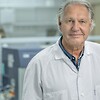
Rekordutdelning från Cancerfonden – över 230 projekt beviljas anslag
Cancerfonden har beslutat att dela ut ytterligare 815 miljoner kronor till ett stort antal projekt. Störst tilldelning får cancerforskningen vid Karolinska institutet.
-
Storsatsning i Uppsala – life science-område ska växa kraftigt
Uppsalas största life science-kluster ska bli större – mycket större. Området i Fyrislund ska tredubblas till ytan och ge plats för ytterligare 12 000 arbetsplatser, enligt ett förslag till ny detaljplan som nu är ute på samråd.
-

Richard Bergström blir hedersdoktor vid Uppsala universitet
Uppsala universitet har utsett fem hedersdoktorer vid den medicinska och vid den farmaceutiska fakulteten. Bland de nya hedersdoktorerna finns, förutom den nationella vaccinsamordnaren, tre forskare och en journalist.
-
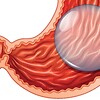
Alert from the Swedish Medicines Agency: Many complications with gastric balloons
According to the Swedish Medicines Agency, an increasing number of serious complications are being reported in procedures with gastric balloons as a method for weight loss. The authority fears significant shortcomings in the information to patients both before and after the procedure.
-
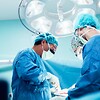
“We need to build flexible operating theatres”
Flexible operating theatres, micro-sensors on surgeons to monitor their well-being and 3D images projected onto organs to be operated on. These are a few ideas that three specialist surgeons are suggesting for the operating theatre of the future.
-

“We aim to be a start-up company with an academic spirit”
Chronic pain and Alzheimer’s are two diseases that plague many people worldwide and seem impossible to cure. However, Huddinge-based company Alzecure is working on developing drugs for both conditions.
-
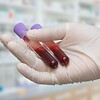
Boule Diagnostics tar in finansiering för ny plattform
Boule Diagnostics, ett företag inom hematologi, tar in 150 miljoner kronor genom en företrädesemission.
-

Biosimilars bring price pressure, but are they sufficiently used?
When biosimilars were introduced just over 16 years ago, hopes were raised that they would give many more patients access to effective but otherwise extremely expensive treatments with biological drugs. So, how well has Swedish healthcare used biosimilars? The answer partly depends on whom you ask.
-
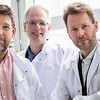
”Vi vill vara ett startup-företag med akademisk anda”
Långvarig smärta och alzheimer. Två sjukdomar som plågar många människor världen över och som verkar omöjliga att rå på. Men Huddingeföretaget Alzecure arbetar med att utveckla läkemedel mot båda tillstånden.
-
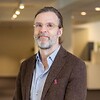
Oncopeptides cancerläkemedel röstades ned i USA
flufenamid) med siffrorna 2 för och 14 emot.
-

Richard Bergström har fått nytt jobb
Sveriges vaccinsamordnare Richard Bergström har sagt upp sig. Det rapporterar Läkemedelsmarknaden, som har tagit del av ett uppsägningsmejl till socialdepartementet.
-

Bought a tablet factory – and built his own empire
In 1995, Thomas Eldered was CEO of one of Pharmacia’s factories in the Stockholm area when the Swedish pharmaceutical giant, after a takeover, decided to move its production abroad. 34-year-old Thomas was facing an imminent risk of losing his job. However, instead, it actually turned out to be the starting point for one of the biggest success stories in Swedish life science.
-
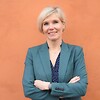
Marie Gårdmark: Potential step change – EU regulators get to play with data
A new pilot from EMA is starting in September to assess wether the analysis of 'raw data' by regulatory authorities improves the evaluation of marketing approval for new medicines. Marie Grådmark writes in a column that she is looking forward to the outcome of the pilot to hopefully then understand if “in house” analyses actually will add value.
-

Klinisk studie av läkemedel mot apkoppor inleds i USA
Forskare i USA vill ta reda på hur väl det antivirala läkemedlet tekovirimat hjälper mot apkoppor. Nu inleds en fas III-studie.
-
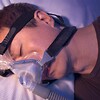
Philips återkallar 17 miljoner andningsmasker – kan störa ut pacemakers
I juni förra året återkallade Philips 5,5 miljoner ventilatorer och andra andningsstödsmaskiner i USA. Nu är det dags igen. Mer än 17 miljoner av företagets andningsmasker innehåller magneter som kan störa ut bland annat pacemakers, aneurysmklämmor och neurostimulatorer.
-
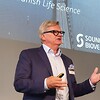
Finansiering och riskkapital i fokus: "Rätt tid att investera i biotech"
Sverige och Danmark är topprankade i EU när det gäller medicinsk innovation – men inte lika bra på att göra något av idéerna. "Det finns ett gap på den nordiska marknaden: brist på kapital. Och vi löper risk att gå miste om storartade möjligheter", säger Tobias Horneman-Thielcke på riskkapitalfonden Eir Ventures.
-

Genes from Neanderthals can affect the correct drug dosage
A fifth of all Europeans carry gene variants inherited from Neanderthals, which cause certain drugs to break down more slowly. This may have implications for the drug doses they should take.
-
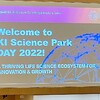
Lucy Robertshaw: Did you know Stockholm wants to be in top 5 in the world for Life Sciences?
Karolinska Institutet Solna Campus has certainly become the next “Kendall Square”, writes Lucy Robertshaw in a column.
-

Svensk-amerikanskt biotech-företag flyttar in i Forskaren
ITB Med etablerar sitt svenska kontor och laboratorium i Hagastaden. Under sommaren 2024 flyttar det biofarmaceutiska företaget in i Forskaren, på en 500 kvadratmeter stor yta.
-
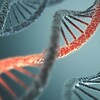
Newly discovered gene variant linked to protection against abdominal obesity
American researchers believe they have identified a rare gene mutation that protects against abdominal obesity and metabolic syndrome. The ambition is that the discovery will lead to new treatments that can help reduce the risk of type 2 diabetes and coronary artery disease.
-

BioVentureHub CEO: “Companies with a high degree of interaction achieve greater success”
For the first time since its inception, AstraZeneca’s BioVentureHub can now recruit new companies, as some of its tenants have grown significantly and are leaving the hub. This is the message from the biohub’s CEO Magnus Björsne in an interview, in which he also highlights a study that points out that companies with a high degree of interaction with other companies achieve greater success.
-

Ny styrelseordförande till Epista Life Science
Per Kogut blir ny styrelseordförande och Ronny Roos lämnar därmed ordförandeposten, men stannar kvar i styrelsen.